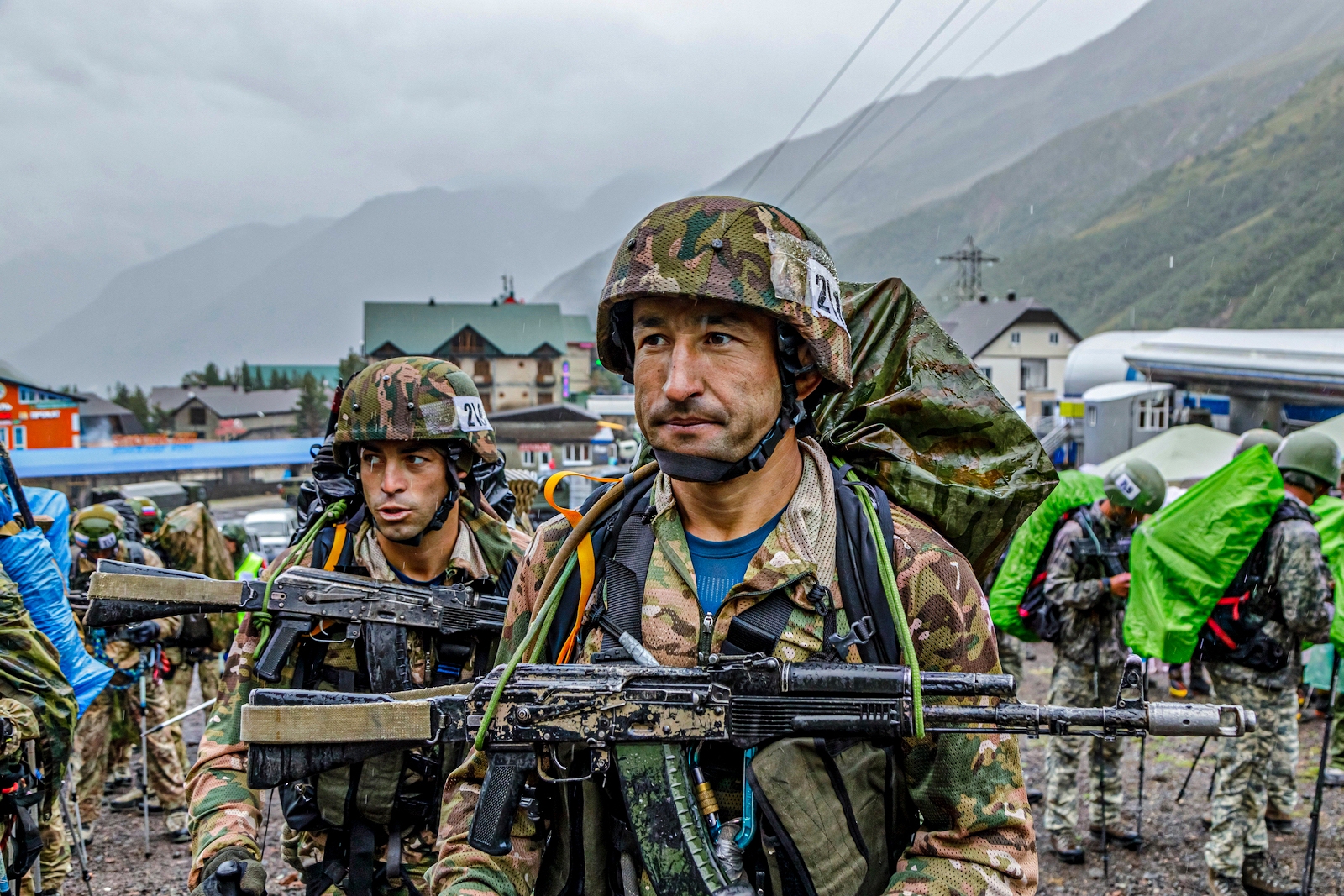
Ties to Moscow Strained as CIS States look West
As Russia gets bogged down in a war of attrition against fierce Ukrainian resistance, some of its former Soviet republics are forging ahead.
At least some of the ex-Soviet states are looking west, not east, for their futures.
The latest example of this potentially seismic shift came on June 17 when the European Commission formally welcomed Ukraine and Moldova as candidates for membership.
But Georgia, another former Soviet republic, is being asked to meet certain conditions before being granted the same status.
It’s only a first step as the final decision rests with the EU’s 27 member states who get together on Thursday.
Russia is one of Moldova’s key trading partners and, due to the region-wide impact of the war, its economy is expected to shrink slightly this year.
For Georgia, an intensification of the war, further sanctions on Russia, and domestic political instability are risks to its economic outlook.
The ongoing conflict in Ukraine is certainly being felt in CIS (Commonwealth of Independent States) countries. The CIS is a regional intergovernmental organization formed following the dissolution of the Soviet Union.
Regional inflation in the CIS jumped to 16.8% in April, compared to 15.6% in March, marking the highest reading in the region since records began.
A potential spill-over of the war in Ukraine remains a major risk to growth. Even so, some CIS countries are clearly weathering the economic storm caused by the war better than other CIS members.
For example, at 5.8%, Uzbekistan’s GDP expansion rate is well above the CIS regional average.
The latest data on industrial output and the retail, services, and construction sectors all suggest robust domestic momentum in Uzbekistan. Business-friendly reforms should further encourage investment, while economists project the GDP to grow by 3.9% in 2022.
Uzbekistan is a country that spent most of the past 200 years as part of the Russian Empire, and then the Soviet Union, before emerging as an independent state when Soviet rule ended in 1991.
A country about the size of Sweden with a population of 34 million, it was already Central Asia’s most economically developed republic when it gained independence more than two decades ago.
A period of stagnation set in, with the country regularly criticized over allegations of human rights abuses.
Now, though, fresh efforts are being made to help break Uzbekistan out of its relative international isolation and economic stagnation.
A series of new initiatives have been launched aimed at serious political and economic liberalization.
A senior government official at Kazakhstan’s foreign ministry describes the political changes in Uzbekistan: “When the president changed in Uzbekistan and the new president came in, Shavkat Mirziyoyev turned Uzbekistan 180 degrees into a constructive nation, in the heart of Central Asia. it’s the only country in Central Asia that borders all the others.”
For example, starting in 2023, Uzbek companies will be able to list stock on stock markets abroad.
Earlier this month, Artel, one of Central Asia’s leading electronics and home appliance manufacturer, became the largest 100% privately-owned company to successfully place a corporate bond on the Tashkent Stock Exchange (TSE).
The move comes after a presidential decree was issued at the start of this year that paved the way for tax incentives to encourage investment in domestic capital markets.
Following extensive tax reforms in 2019 that lifted restrictions on the size of businesses, private entities have been able to consolidate their subsidiary companies under holding groups.
This has allowed them to introduce all-important international standards of corporate governance and accounting practices and provide the scale to access more diverse forms of financing, both domestically and internationally.
The big fear was that the slump in Russia’s economy caused by unprecedented sanctions imposed by the West would only heighten the economic damage to the region.
But forward-thinking initiatives in Uzbekistan are music to the ears of those in the West who feared some ex-Soviet republics might be sucked back into Russia’s orbit.
Indeed, the ongoing conflict in Ukraine and subsequent hits to the Russian-Central Asian economic relationship could potentially speed the region’s total realignment as evidenced by EU candidate status bids by the likes of Moldova and Georgia.
One of several former USSR members in the region, Uzbekistan is another which is emerging from isolation with renewed efforts to make its economy more competitive to attract foreign direct investment.
Both remain top priorities for Uzbek leaders.
The Uzbek government has already liberalized the foreign currency market to attract investments, and in February 2019, Uzbekistan received its first sovereign credit rating.
In a historical context, Uzbekistan has made a sharp and dramatic turn toward a more open society in recent years and the progress has accelerated this year. Uzbekistan is rapidly moving up independent world rankings and indices that measure good governance, civil liberties, economic activity, and development.
A source at the European Commission in Brussels told me that the country has made “great strides” in transforming its centralized economy into a liberal market economy.
New digital, financial, and transportation infrastructure, along with more attractive economic conditions, has increased business activity in Uzbekistan, including a steep rise in foreign direct investments, noted the source.
Even so, landlocked Uzbekistan, a mainly Muslim country of 34 million in the heart of Central Asia, still faces serious challenges. Unemployment is one of its biggest problems, with millions of Uzbeks working abroad – mainly in Russia – to provide for their families.
Artel’s bond issuance, albeit small, is the first time a big private player has issued bonds on the local stock exchange and Akmal Djalilov, the founder of Uzbekistan’s “Be Trader” platform, says this represents “a breath of fresh air for those addressing Uzbekistan’s investment issues.”
At the same time, he cautions that “a sector that has been rather idle for quite some time cannot be transformed with a single document.”
Today, several factors, he says are holding back the development of Uzbekistan’s stock market.
He believes it is still necessary to create attractive conditions for the initial placement of shares, not only of domestic but also of foreign companies.
“Secondly,” he notes, “it is important to increase the literacy of the population in the field of investment and, thirdly, we need to increase the share of retail investors among the participants of the stock exchange.”
Sarvar Akhmedov, head of the Capital Markets Development Department at Uzbekistan’s finance ministry, insists the government is committed to increasing confidence in the domestic markets and creating the conditions for an “increasingly healthy and liquid TSE.”
Shokhruh Ruzikulov, Artel’s CEO, is “very proud” to have issued its first bond on the domestic market, providing an opportunity to demonstrate its “strong” growth prospects.
Looking to the future, he hopes more can be done to further improve the investment climate in the country, encourage the attraction of direct investment and strengthen investor confidence.
It is clear that some CIS members want to follow the Baltic states and escape Russia’s grip.
Latvia, Lithuania, and Estonia were the only three Soviet republics that did not join the CIS after the collapse of the Soviet Union and, for their former comrades, real independence has been harder to attain.
But it was perhaps inevitable that a time would come when at least some CIS countries, like the Baltic states, would stir from their post-Soviet hangover and wonder whether it wasn’t time to cut the Kremlin’s apron strings and strike out in another direction.
